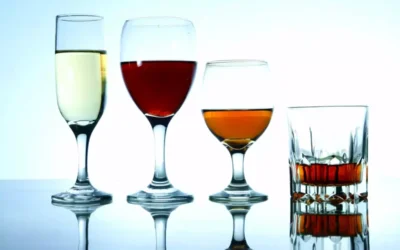Content
Such factors including head injury, neurochemistry, physiological reactivity, metabolism, and genetics. If you don’t quit drinking, you may have a chance of severe liver damage that can be life threatening. Quitting is often difficult, but a doctor can help build a cessation plan that works for you. Mild is classified as 2 to 3 symptoms, moderate is classified as 4 to 5 symptoms, and severe is classified as 6 or more symptoms, according to the DSM-5.
- Verbal outbursts or less severe physical attacks may still occur in between these times.
- The idea that altered forms of consciousness such as mania or alcohol can enhance creativity is a popular belief.
- Did you recently experience an incident that stemmed from your alcohol-related aggression?
- The ability to plan ahead, learn and hold information (like a phone number or shopping list), withhold responses as needed, and work with spatial information (such as using a map) can be affected.
But it’s also important to cultivate patience as they work toward making changes. Remember that addiction is a serious disease, and you’re doing the best you can. Try to nurture feelings of patience and self-love, especially on the days you feel those emotions the least. Based on this definition, https://ecosoberhouse.com/ the symptoms of “dry drunk syndrome” may constitute a relapse, even if the person doesn’t drink. These behaviors and emotional concerns can strain your relationships and interactions with others, especially if alcohol use has already had a negative impact on your relationships.
Reduced consideration for consequences
An angry drunk is someone we’ve all probably come into contact with at one time or another. You’re out having a drink with friends or enjoying a party and there’s one person who seems to be looking for trouble. He, or she, is being excessively rude or aggressive, and the more they drink, the more likely it seems that they’ll fly into a violent rage. While psychotherapy alcoholic rage syndrome is the primary approach for co-treatment of alcohol use and anger management, medications like mood stabilizers and those used to treat substance withdrawal may also be part of your treatment plan. It’s common for alcohol and anger to be stereotypically lumped together, but many people labeled “angry” while drinking may actually be experiencing aggression or hostility.

They were more likely than those without the variation to have a history of outbursts and fights while drinking, as well as to have been arrested for driving under the influence. If you have intermittent explosive disorder, prevention is likely beyond your control unless you get treatment from a mental health professional. Some are quite docile, drinking alone until they pass out, meaning no harm to anyone.
How to Cope With Dry Drunk Syndrome
Other holistic methods are often used during a comprehensive addiction and anger management treatment program as adjunctive, or complementary, treatment methods. Massage therapy can help to relieve physical tension and therefore promote mental clarity. Expressive therapies provide healthy, and often nonverbal, outlets for the expression of negative and difficult emotions. Finally, support groups provide encouragement and hope for recovery. Loved ones are an integral part of the addiction recovery process, but they need to balance their own needs in addition to providing support. To do that, they can set boundaries around their emotional, physical, and financial relationship, for example that the house will remain an alcohol-free zone.
Your treatment will depend on the role alcohol plays in your life and how present anger is during your everyday lived experience. The study concluded that alcohol increased the odds of physical aggression in those men who had high trait anger and poor anger management skills. It also noted that sexual aggression was higher with alcohol, even in men with low trait anger and reasonable anger management skills. Alcohol can provoke different emotional responses for different people. If you have a natural tendency to be angry, drinking alcohol may cause you to become aggressive. “Trait anger” refers to a person’s general tendency to experience chronic anger over time.
Potential complications of Zieve’s syndrome
Therefore, people who rely on drinking as a coping mechanism can be more inclined to make rash choices, such as having unprotected sex or getting into a car with a stranger. Unfortunately, feeling aggressive from alcohol can stem from more than one variable that’s beyond your control. Aside from existing anger issues, people can turn into aggressors when drinking for several reasons.

They might feel frustrated or angry, struggle with their desire to drink, or express a lot of negative thoughts. Risks for the baby can include brain damage and developmental, cognitive, and behavioral issues. No amount of alcohol is safe to drink while pregnant, according to the CDC. If a health professional has diagnosed you with anger management problems, you may find these get worse when you drink. Alongside quitting alcohol, you could benefit from attending an anger management support group. Typically, support groups have professional leaders, like social workers or psychologists, so you can ensure you’re getting expert advice.